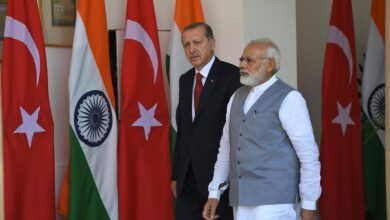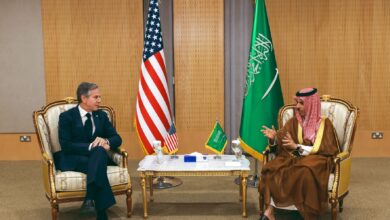Islamic Ethics in the Digital Age: Challenges and Opportunities

Islamic business has to adapt to modern ways and means and is confronted with new problems concerning applying the rules of Islamic ethics. In Islam’s traditions, hikmah, which means wisdom, is combined with thinking and acquiring knowledge. Since the Quran often encourages its followers to think about the signs of God and their position in the cosmos, such principles become rather significant in today’s technologically driven environment and ‘connectedness’.
Challenges
Hyperconnectivity and Fluid Identity
Modern technology sanctions higher levels of interconnectivity; people can communicate with others in any part of the world within the shortest time possible. On the downside, having a coherent sense of self is always challenging, and it is constantly under threat due to the connectivity available to mod users. Each time a user scrolls through his newsfeed, he is bombarded with various feelings and knowledge, ranging from oppression to a simple: ‘Found a new lipstick colour’. The abundance of information daily inundates and challenges a person’s ability to concentrate, introspect and make meaningful work decisions.
According to the historian Yuval Harari, the world is likely to develop a new ‘useless class’ within the AI world due to the rise of AI displacement of jobs, which causes individuals to feel that they have nothing useful to do. This feeling of alienation plays a part in the development of anxiety and depression since people cannot find their proper role in society.
Cosmetic Validation
Recognition is one of man’s inherent desires, which the emergence of social networks has exacerbated. Instagram and Facebook, to name a few, are mostly designed so that users constantly search for approval in one form or another, such as likes, comments, or shares. This phenomenon lays the foundation for the culture of seeking approval from others, which originates from imitating other successful cultural models regardless of the inappropriateness of certain behaviours to one’s culture.
This desire for validation can be compared to mimicry in postcolonial literature, where colonised people emulate the colonisers’ language and culture to gain power. In modern society, it can be expressed as the desire for popularity, money, and energy, leading to constant comparison and frustration.
Ubiquity of Pornography
The accessibility of pornography has vastly grown in the present generation with the use of the internet, and this is a challenge to Islamic ethics. Due to free and easy access to the content coupled with the overwhelming amount of sexually explicit material readily distributed online, this comes with negative impacts on the individual’s emotional and psychological state. According to research, pornography changes people’s perception of themselves and others, resulting in the distortion of gender relations and exacerbation of gender disparities.
Another factor that explains the existence and activity of pornography today is money. Since it is profit-oriented, it requires its producers to come up with ways of attracting the attention of the buyers. This has resulted in the existence of a culture of habituation so that the viewers become immune to materials and look for more and more extreme content. This not only means dehumanisation of people but also presupposes negative attitudes and behaviours, which are violent.
Opportunities
Primacy of Functioning Intellectuals
A functioning intellectual class is needed to counteract the digital age issues. In the words of Malay sociologist Syed Hussein Alatas, intellectuals have the critical function of discovering, defining and providing diagnoses and prescriptions about social problems. As far as Islamic morality is concerned, it is the scholars who are assigned a central position in the provision of suitable direction to the society, which is especially in need of a moral compass in the face of today’s challenges and realities while not losing the main code of reference – the Quran.
The Quran often advocates using reasoning and logic to arrive at the truth. This must be cultivated to raise a class of functioning intellectuals who can reason out and offer direction on the prevailing issues.
Cognitive Development of Children
The influence of screen time on child development has emerged as one of the most important topics concerning parents, given the current society’s influx in technology. Thus, watching TV and playing video games negatively impact certain cognitive skills, but it is necessary to consider this problem as a part of moderation. Screen time can be managed effectively through a strategy developed by the American educator Lisa Guernsey, which is the three C’s: Contents, Context, and Child.
So, the quality of the material consumed, the circumstances associated with screen time, and the child’s specific needs and preferences should be the main concerns of the parents. This way, parents need to foster the proper relationship with technology as it helps the children learn while at the same time remaining connected to their religion and Islamic values.
Reentering the Human in Education
Education should not only be an economic tool but should also aim to develop individuals’ ethical and intellectual sides. One of the noteworthy Malaysian philosophers is Syed Muhammad Naquib al-Attas, who underlines the adab as wisdom, justice, and proper quarries within persons. The objectives of education should be to produce persons who are aware of their duties to God, themselves, and society.
Theology of Imagination
Thus, religious imagination can still be seen as a relevant and significant response in a world overflowing with data and false data. When scripture and reason blend with one’s imagination, people can look for traces of God and attain spiritual satisfaction. This approach motivates Muslims to be more involved in their religion so that they can fully grasp their position in the universe.
In the digital age, previously inconceivable professions emerge, creating potential threats and opportunities for Islamic ethics. Inherently, philosophy offers a way of wisdom, intention, and reflection, allowing Muslims to live in the modern world without betraying their beliefs. By incorporating critical analysis in technology use and ethical learning in existent societal platforms, people will successfully lead self-sufficed and meaningful lives in the virtual world.



